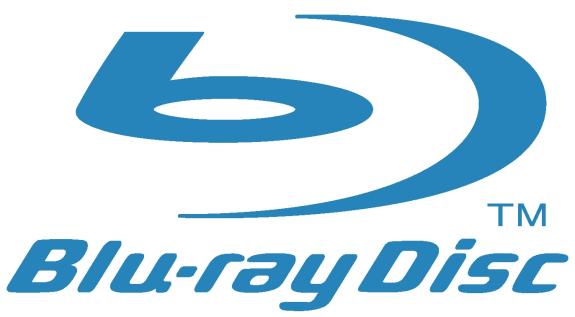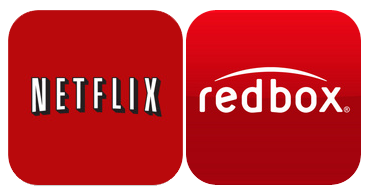Cinavia DRM: How I Learned to Stop Worrying and Love Blu-ray’s Self-Destruction
by Ganesh T S on March 21, 2012 11:00 AM EST- Posted in
- Home Theater
- Blu-Ray
- DRM
- Cinavia
DRM (Digital Rights Management) is intended to protect media from being played in an unauthorized manner. However, more often than not, it fails to serve the purpose. Many people in the content industry are fully aware that it is not possible to stop media piracy. They view DRM as a method to slow down the pirates. The panel discussion on anti-piracy measures at the HPA 2011 Tech Retreat compared this to using a key to lock a car, even though a thief with proper equipment could still steal it.
High definition content is valued by the content owners, resulting in extra efforts being taken to protect them from being pirated. For example, while standard definition Netflix streams play on a variety of platforms, high definition streams require more secure systems with protection across all stages of playback. Similarly, not much effort has been taken to stop the usage of open source DVD decrypters / decoders, which mean that the consumer doesn’t need to invest in a licensed player to play back DVDs. Open source software like VLC can play back protected DVDs without any issues.
Blu-rays, on the other hand, with their high definition content, are yet to be hacked enough to be played back with full experience using open source tools. There is a constant tussle going on between the decryption tool makers (who enable the Blu-ray disc content to become unprotected) and the Blu-ray publishers who don’t want this to happen (and try to find new ways to encrypt their Blu-rays without breaking player compatibility in the field). The net result is that almost every new Blu-ray fails to play back on a player if it doesn’t have the latest firmware updates. This is obviously a drawback for consumers who just want to put the disc in the tray and enjoy the movie.

In today’s piece, we will be concentrating exclusively on Blu-rays. A look at the market trends seems to indicate that online streaming services like Netflix and Hulu are overtaking conventional media distribution channels such as DVDs and Blu-rays. However, this doesn’t mean that optical media will die out anytime soon. Currently, a large number of consumers don’t have reliable enough Internet access to guarantee a good experience with premium streaming services. Market research indicates that Blu-ray sales have indeed shown an annual increase. This growth can be attributed to the low cost of Blu-ray players (some could be found for as low as $49 last November) and the rising number of $5 Blu-rays available in the bargain bins of various big box retailers. Blu-ray rentals from companies such as Redbox have also shown an increase in popularity.

The BDA sees Blu-ray shipments growing for the foreseeable future. However, they have also realized that the future of the Blu-ray industry lies in eventually adapting to the cloud / Internet infrastructure. The UltraViolet initiative is geared towards this. We will look at this in detail later in the piece.
The rise of VoD services will definitely threaten Blu-ray, particularly because of the ease of use associated with them. In almost all cases, one can start watching a movie on Netflix or Vudu with a few clicks. Compare this with current Blu-rays where users have to put up with a number of trailers and copyright messages before the movie starts playing. It is no wonder that consumers with high speed Internet often prefer services like Vudu over Blu-rays. Given this situation, Blu-rays continue to come with pesky DRM mechanisms. The latest in this lineup is Cinavia. Before going into its details, we will have a brief overview of all the DRM mechanisms involved in Blu-rays.










121 Comments
View All Comments
bobbozzo - Friday, March 23, 2012 - link
on Page 4 the article says:assumptions...
3. People interested in backing up their purchased Blu-rays on hard drives do so in the ISO or folder backup format
but on page 6, it says:
MKV: This is undoubtedly the most popular format for storing HD movies. In this backup mode...
So first you imply that people using MKVs are pirates, and then you recommend it.
I've found that large DVD/BD collections are unmanageable in ISO format due to disk space.
One of my clients has a 12TB RAID5 (7 2TB drives) for his media, plus another RAID5 mirror, and is constantly plagued by failing drives, etc.
I recommended he switch to MKV and has cut his storage requirements by at least 50%.
Also, as you point out on page 6, the load times are ridiculous for BDs and ISOs.
Please fix your comment on page 4.
ganeshts - Friday, March 23, 2012 - link
Pirates use MKVs, but not all people who use MKVs are pirates :) I still recommend MKV like you do for large collections where hard drive space is an issue.The reason I talked about backups in ISO or folder format is because those are the types of backups which require a Blu-ray player with menu support (and which are more likely to have Cinavia and get affected).
Matt355 - Friday, March 23, 2012 - link
As someone who has been victimized by these jerks. I love your article and agree that BD Live its trash, I have never read the FBI Warnings, I change inputs on my TV till it's over since I can't fast forward it, I do the same with the trailers.But how about this.
I've payed extra to buy quite a few Blu-Rays that included digital copies. I downloaded them in iTunes only to discover that not only are they all SD copies. but that Apples cloud storage dose not store or stream to my Apple TV, iPhone, or iPad because they were not purchased directly through iTunes. But if i ripped the Blu Ray. I could stream or store the HD copies on any device I own. Apple or not. Witch means I payed extra for nothing.
MamiyaOtaru - Saturday, March 24, 2012 - link
I will never purchase a bluray. 3d movies are right out too.brucek2 - Saturday, March 24, 2012 - link
As was most recently shown with the iPod, and before that with the McDonalds and 7-11s of the world, convenience usually wins. Personal MP3 players often have sound quality well below what is available to consumers in home stereos they already owned, yet my experience is today the vast majority of music today is played back on this lower quality, more convenient format.The same thing is happening with Blu-Ray. Consumers with the right infrastructure will prefer more convenient approaches such as streaming or piracy. Consumers without may find themselves spending their recreational time doing something else entirely.
Not sure why the content owners are shooting themselves in the foot like this. Its especially puzzling since with Blu-Ray being the format that presumably brings the most dollars directly to the studio, you'd think they'd want to make that the best, most convenient experience possible. Instead, its probably the worst.
The Jedi - Saturday, March 24, 2012 - link
So Ganesh doesn't trust what he can't steal. If you can't steal a high def movie in Blu-Ray format off of a file sharing service, or you can't rent something and then copy it to keep a copy, you just shouldn't support Blu-Ray as a standard. Whine, whine whine.Students tend to have no money so they justify stealing music or software. Hopefully when they mature and become employed, their ethics will also mature and they will take pride in being "legit" and purchasing and owning things. Until then renting from RedBox and NetFlix is still cheap and legal.
Besides, it's too hard to pirate with ISP 3 strikes warnings and bandwidth caps. If you like streaming Netflix and don't like bandwidth caps, get service on a business account.
ganeshts - Sunday, March 25, 2012 - link
If you read the whole piece, I am actually trying to convey that unless Blu-rays give consumers a better experience than Netflix / Vudu streaming (which is basically instant watch as long as the bandwidth is there), Blu-rays will start to decline in popularity. I am not suggesting that one needs to copy it or get off a file sharing service for that. Why can't studios just give a MKV on a Blu-ray disc (with same DRMs) which enables a consumer to start watching the movie immediately without all the trailers / load screens / warnings etc.? These are the types of measures I would like to see the studious adopt.Netflix also has DRM obviously, but we are not complaining about it because it is transparent to the user and doesn't treat him like a criminal.
The 'whining' is about making sure studios see where they can improve the consumers' Blu-ray experience. It is obvious that DRM is not going to go away any time soon. However, when measures like Cinavia come about, they punish the legit consumer more than the actual pirates (and I have explained in detail why that is the case).
colonelciller - Wednesday, March 28, 2012 - link
kinda have to agree with you... used to have a big DVD collection until I realized that it really was just a collection. I used to buy movies out of habit and a desire to own it... I'd watch them once and file it away into the collection where it would sit for YEARS...in short, why buy when you'd have to rent it 5 times before you paid the price of buying it..?
insx - Wednesday, March 28, 2012 - link
I have a good laptop and a 3D projector at my disposal. I would love to buy a few 3D blu-rays and rent lots more. However, I can't legally watch them because the projector isn't HDMI 1.4 compliant (and there's some other technical stuff I don't understand) and licensing issues prevent anyone from releasing software that will let me play 3D blu-ray on my setup.I have 2 legal options:
1. Spend thousands more pounds on equipment that is approved (too expensive)
2. Go without (unsatisfactory)
I have 2 illegal options:
1. Buy/rent the 3D blu-ray and rip to MKV file. Watch and enjoy (time consuming/inconvenient)
2. Download from the web and don't pay anybody (time consuming, getting easier)
I really think that there should be a legal option that looks like this:
Rent/buy 3D blu-ray. Watch and enjoy (convenient, everybody happy).
As many people have said, they really have shot themselves in the foot.
rickcain2320 - Wednesday, March 28, 2012 - link
Its interesting to note that CD's have now been around for 30+ years and none of them have any DRM, yet the music industry still exists and continues to grow.I don't see any difference between the CD and the DVD in terms of distributing entertainment to the consumer, but they seem to believe there is one.